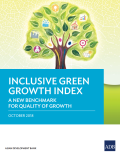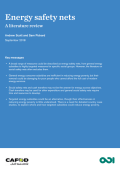
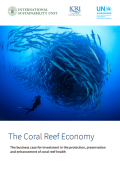
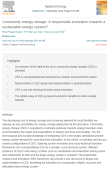
The decreasing cost of energy storage and increasing demand for local flexibility are opening up new possibilities for energy storage deployment at the local level. Community energy storage (CES) is expected to contribute positively towards energy transition while accommodating the needs and expectations of citizens and local communities. Yet, the technological and societal challenges of integrating CES in the largely centralized present energy system demand for socio-technical innovation. In this article, we develop and discuss several configurations of CES.
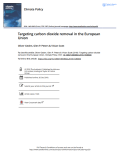
In principle, many climate policymakers have accepted that large-scale carbon dioxide removal (CDR) is necessary to meet the Paris Agreement’s mitigation targets, but they have avoided proposing by whom CDR might be delivered. Given its role in international climate policy, the European Union (EU) might be expected to lead the way. But among EU climate policymakers so far there is little talk on CDR, let alone action. Here we assess how best to ‘target’ CDR to motivate EU policymakers exploring which CDR target strategy may work best to start dealing with CDR on a meaningful scale. A comprehensive CDR approach would focus on delivering the CDR volumes required from the EU by 2100, approximately at least 50 Gigatonnes (Gt) CO2, according to global model simulations aiming to keep warming below 2°C. A limited CDR approach would focus on an intermediate target to deliver the CDR needed to reach ‘net zero emissions’ (i.e.
